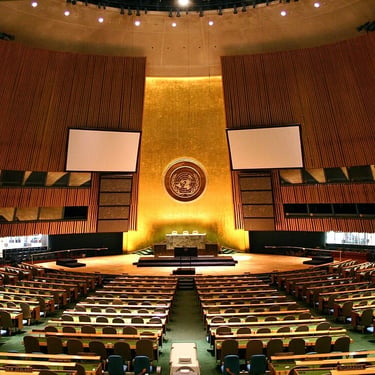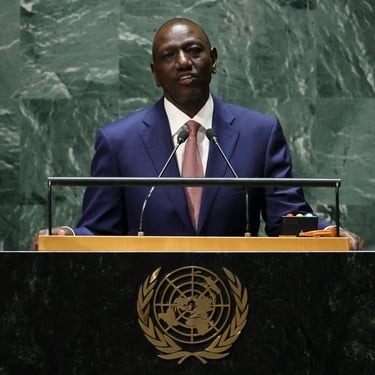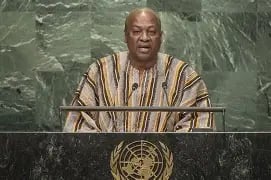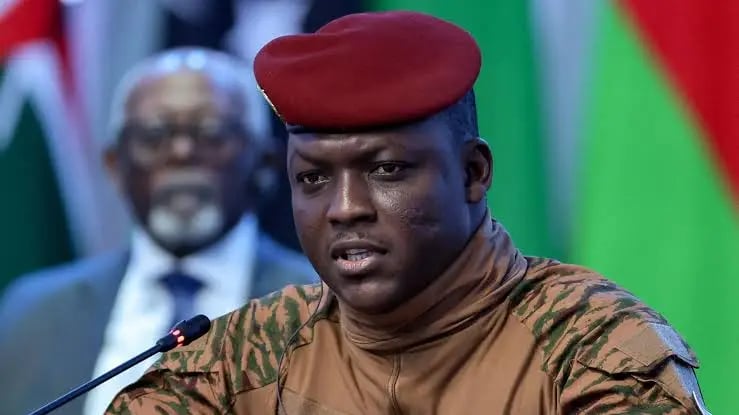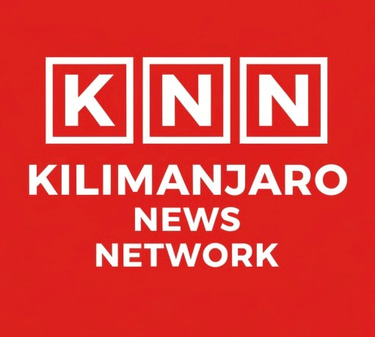At the United Nations, Africa Demands a New World Order
For decades, Africa’s leaders were expected to show up at the United Nations, deliver measured remarks, and leave the real decisions to others. Not this year. At the latest General Assembly, Africa did not whisper grievances or extend polite requests—it declared a rupture. The continent’s presidents and representatives spoke with one voice: the global order as it stands is unjust, obsolete, and untenable without Africa at its center.
GEOPOLITICS
E. N. Quenti
9/28/20252 min read
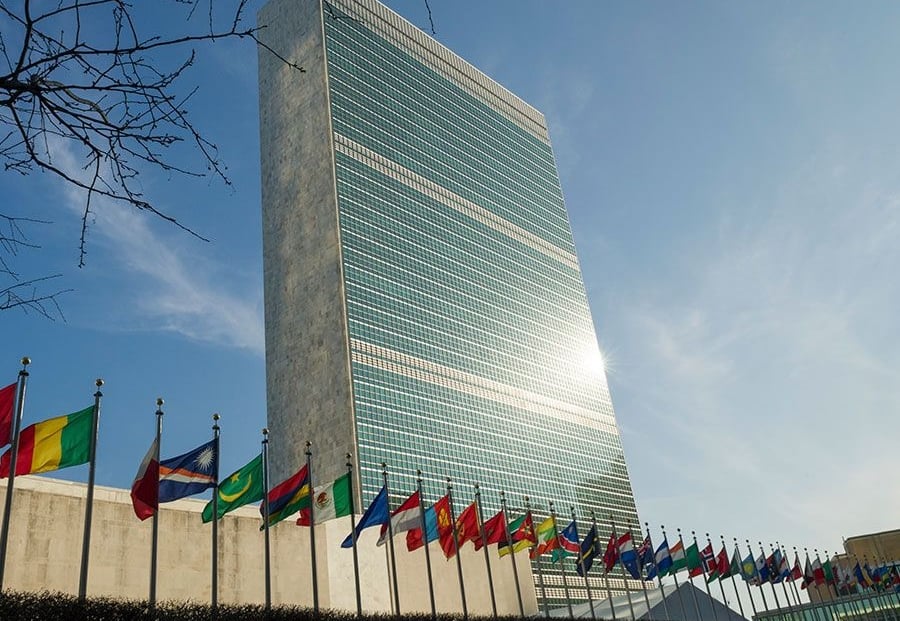

Africa’s New Assertion
At this year’s United Nations General Assembly, Africa did not come to plead. It came to demand.
From Kenya’s William Ruto to Ghana’s president, from Rwanda’s Paul Kagame to the growing influence of Burkina Faso’s Ibrahim Traoré, the message was the same: Africa will no longer be spoken for, sidelined, or patronized. It will be an architect of the world order—or the world order will crumble under its own illegitimacy.
Ruto’s blunt declaration—“We won’t wait. We will not be silenced”—cut through the usual diplomatic theater. He pointed out the obvious: a Security Council frozen in the politics of 1945 is not just outdated; it is absurd. Ghana’s leader went further, calling global finance what it is—rigged. He reminded the Assembly that the North’s carbon wealth is paid for with Southern suffering: droughts, floods, and the forced migrations that the very same countries then demonize.
Kagame added precision: Africa’s debt crisis is manufactured, not inevitable. Inflated “risk premiums” and suffocating interest rates keep nations in permanent subordination. His call was not for aid but for accountability—a financial system that measures fairness, not fear.
Even without taking the podium, Traoré’s influence was unmistakable. The Sahel’s new brand of Pan-Africanism rejects neo-colonial tutelage outright. Its message is unflinching: sovereignty first, partnership second.
"We won’t wait. We will not be silenced”
This is not rhetoric. It is a pivot. Reparations for slavery and colonialism are now an official policy demand, not an activist slogan. Security Council reform is no longer a polite request but a line in the sand.
As the UN approaches its 80th anniversary, the choice is stark: adapt or become irrelevant. A global order that excludes a quarter of humanity from power cannot last. Africa is not asking for inclusion; it is asserting it.
The speeches in New York were not a cry for help. They were a declaration of arrival.
